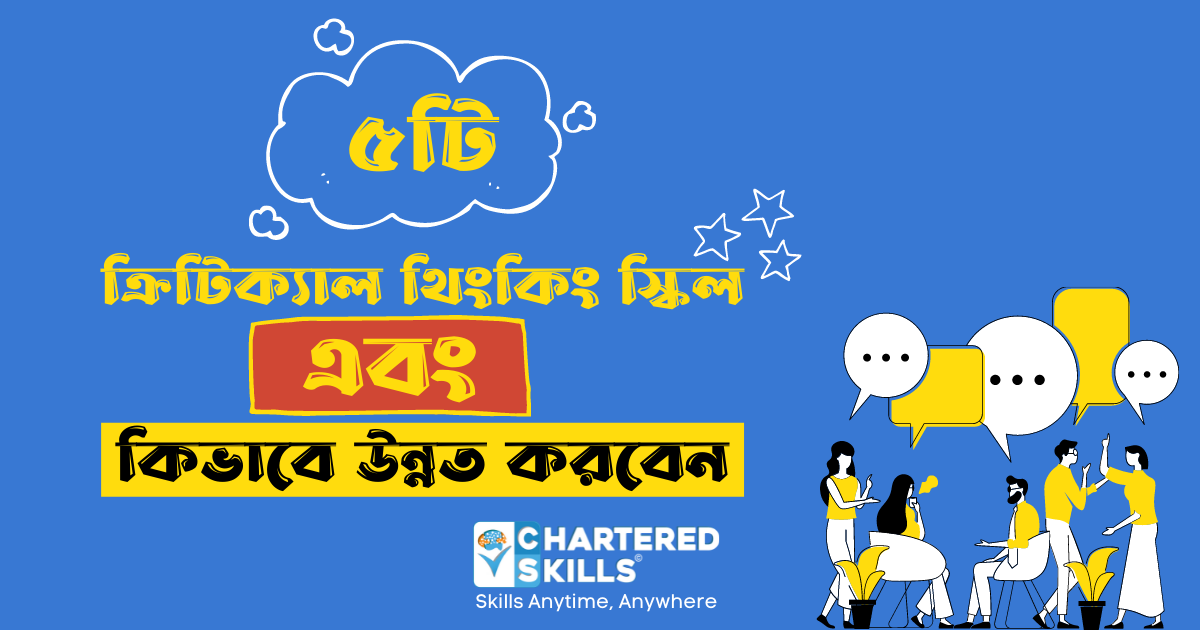


Critical Thinking means denotes the ability to look at facts with an open mind and minimal bias. This is a method for thinking about issues around us that can summarize as evidence-based reasoning. The Process starts with observation and questions. Then, the questions lead us to somewhere interesting. Critical thinking also means collecting information and evidence to supply the answer to our questions logically. And it attempts to put arguments together, making informed conclusions and then communicating and defending those conclusions.
We usually ask questions, analyze and evaluate what we read, hear, say, or write because our deep thinking does not allow us to take things for granted. A deeper kind of thinking means critical thinking used to identify essential mindsets and skills that contribute to effective decision-making. Now come to end for critical thinking, it is nothing but the ability to think in an organized and rational way to understand facts.
At present, filtering, contracting, and processing information to make sense of the world, critical thinking is the only way.
Moreover, employers seek and hire employees having this skill-critical thinking because these skills are essential in every sector at every level, from entry to top-level for a career.
Patience and practice are the most important quality to become a distinguished critical thinker. Besides, you need more time, but you can start from today to improve your skills by following a few steps. Steps are those.
The foremost task is to figure out the main facts to narrow down the issue as precisely as possible because the procedure would help you to get solutions or answers on every issue.
Data on opinions, disputes and real facts offers different ideas and points of view.
It has to analyze the data source whether fake, real argumentative. Besides, if there is information to support a given idea, it could be taken into account.
You have to make sure that the source were unbiased and you weren't biased when you were searching for answers.
It is necessary to segregate significant pieces of information from irrelevant to solve the matter. One more point is that it is also urgent to understand, what piece of information is most important according to context or situation.
Does the strength outweigh the limitations of all aspects? Then draw a conclusion that is sufficiently supported.
When you have done a job, present it to all stakeholders. and these are your final steps.

Critical thinking helps to express thought, beliefs and ideas in a better way. It nourishes creativity and out-of-the-box thinking what would surely influence our personal life. It is needless to say that the quality of life largely depends on the quality of decisions we make in our life. So benefits if critical thinking skills are immense. For instance
Professional success largely depends on critical thinking, particularly journalists, reporters, scientists, lawyers, and analysts. And the skill is becoming more valuable for a growing number of professions.
According to would economic survey, critical thinking and solving complex problems are the most top in-demand skills that employers look for. So this is soft skill is required for success in the workplace.
Thousands of decisions are made by the subconscious mind but they are not important. But when we are going to buy valuable things, get married, and give up something important, we usually experience thought time which makes us thoughtful. Thus, critical thinking paves the way to cope with everyday problems and improve independent thinking.
Critical thinking helps to understand "know they self" and regulate emotion. It also stops negative thinking, limiting beliefs and biases that drive to back in life. It improves the quality of thought.
Critical thinking when proving that your opinions are well informed, based on the best available sources, this breakthrough increases self-confidence. And it is seen in every walks of life.
Critical thinking helps to understand others' points of view and makes me more open-minded. It leads to resolution rather than conflict so personal relationships and professional relationships are established.